Liposuction in Israel
Search and Compare the Best Clinics and Doctors at the Lowest Prices for Liposuction in Israel
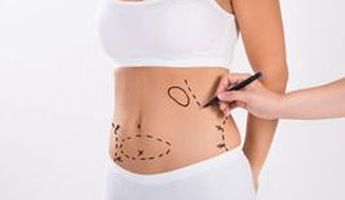
Find the best clinics for Liposuction in Israel
With Medijump you can browse 9 facilities offering Liposuction procedures in Israel. The cheapest price available is $2,429 in Ramat Gan. And for the cheapest price globally, prices start from $120 in Ukraine.
Liposuction in Ramat Gan
Price: $ 2,429
Liposuction in Tel Aviv
Price: $ 8,725
Ukraine offers the best prices Worldwide
Price: $ 120
From 24 verified reviews
sigalit kochmeister, 11 February 2020
Very professional, kind and attentiveLovely clinic and wonderful staffHighly recommend
From 109 verified reviews
Y N, 22 September 2020
Excellent medical center, with friendly staff and highly qualified doctors.Thank you for your work.My operation was successful
From 126 verified reviews
Y Jilani, 19 September 2020
A huge academic hospital serving the greater jerusalem area, world class health professionals and good location and amenities!
From 122 verified reviews
fadi hreaz, 27 August 2020
Hospital gives reasonable treatment but poor sorting
From 106 verified reviews
Abed Faroge, 22 September 2020
בית חולים וצוות ברמה שירותית ואיכותית מאד גבוהה . צוות מקצועי אדיב וקשוב לצרכי המטופלים . רשמת השירות וההיענות של צוות בית החולים משרה אווירת ביטחון שאכן המטופל בידיים טובות .
From 13 verified reviews
charles avital, 16 January 2020
Very beautiful and perfect
Tel Aviv Sourasky Medical Center (Ichilov Medical Center), located in Arison New Hospitalization Building, Tel Aviv, Israel offers patients Liposuction procedures among its total of 428 available procedures, across 29 different specialties. Currently, there's no pricing information for Liposuction procedures at Tel Aviv Sourasky Medical Center (Ichilov Medical Center), as all prices are available on request only, whilst the national average price is approximately $7,256. There are many specialists available at the Clinic, with 13 in total, and they are accredited by JCI Accredited
IIMedCare, located in Arison New Hospitalization Building, Tel Aviv, Israel offers patients Liposuction procedures among its total of 19 available procedures, across 3 different specialties. Currently, there's no pricing information for Liposuction procedures at IIMedCare, as all prices are available on request only, whilst the national average price is approximately $7,256. All procedures and treatments are undertaken by just a small team of specialists, with 3 in total at the Hospital, and they are not accredited by any recognized accreditations institutes
Health Tour, located in Ramat Yam St, Herzliya, Israel offers patients Liposuction procedures among its total of 105 available procedures, across 21 different specialties. Currently, there's no pricing information for Liposuction procedures at Health Tour, as all prices are available on request only, whilst the national average price is approximately $7,256. All procedures and treatments are undertaken by the lead specialist at the Hospital, and they have multiple recognized accreditations, including: Accreditation Programme of Health OrganizationISPS - The Israel Society of Plastic Surgeons
- Home
- Israel
Compare Before & After Photos of _procedure_photos.phpLiposuction
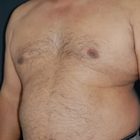
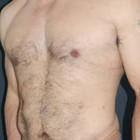
Front view
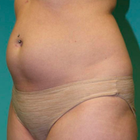
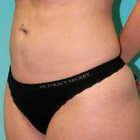
Half-side view
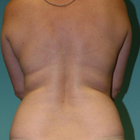
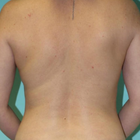
Full-side view
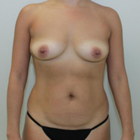

Front view
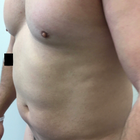
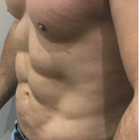
Half-side view
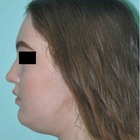
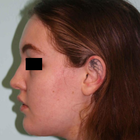
Full-side view
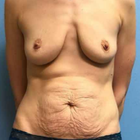

Front view
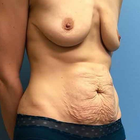

Half-side view
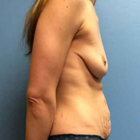

Full-side view
WHY US?
At Medijump, we're making medical easy. You can search, compare, discuss, and book your medical all in one place. We open the door to the best medical providers worldwide, saving you time and energy along the way, and it's all for FREE, no hidden fees, and no price markups guaranteed. So what are you waiting for?

Free

Best Price

Widest Selection

Risk-Free
What you need to know about Liposuction in Israel?

Liposuction is a cosmetic surgery that “sucks” out fat from areas that are hard to lose through a healthy diet and exercise, while liposculpture is the shaping of the skin back to its desired shape. Both are done in conjunction with one another at the same time. Most areas can be treated. Traditionally the most popular areas to treat are the stomach/abdomen, chin and neck, love handles, arms, and inner and outer thighs. Becoming more popular are the knees, calves and ankles, all with very successful results.
While liposuction can permanently remove fat cells and alter your body shape, it should not be viewed as a quick fix for individuals who are significantly overweight. The procedure works best for those who have already lost some weight themselves and are close to their ideal weight but need help tackling stubborn areas of fat in problem areas.
What is the cost of Liposuction in Israel?
When you're thinking about liposuction in Israel, one of the first things you probably wonder about is the cost. Here's the thing: the price isn't the same for everyone. It hinges on a few details like how many parts of your body you’re getting treated, how complex the treatment is, and the professional fee of your doctor. Costs for anaesthesia and the use of the surgical facility are also added to the bill. It's vital to remember, too, that because liposuction is often carried out for aesthetic reasons, normal health insurance might not cover it.
Can Liposuction be used as a weight-loss method?
Unwanted fats are very hard to get rid of especially if you are not a fan of exercise or diet. Liposuction, also known as Lipoplasty, liposculpture suction, lipectomy or simply lipo, basically eliminates unwanted fats by suctioning it away. Despite the growing trend of non-invasive fat reduction treatments, liposuction is still the leading procedure to remove stubborn fat cells.
Liposuction permanently removes fat cells and enhances the shape of your body. A plastic or dermatologic surgeon usually performs this type of procedure on the patient’s belly, hips, thighs, buttocks, arms, back or face to improve their shape. Furthermore, liposuction can be done together with other plastic surgeries such as facelifts, breast reductions, and tummy tucks.
This treatment procedure is particularly used for aesthetics, mainly to improve a person’s appearance. In most cases, maintaining and achieving such positive results will depend on your lifestyle.
What does a Liposuction Procedure Involve?
Before you have the treatment, a series of tests are required to ensure if you are fit for the surgery. You will also need to sign a consent form to confirm that you are fully aware of the risks, benefits and possible alternatives to the procedure.
You will likely be put under using general anesthesia, which can last for 1 to 4 hours. An epidural can also be used for procedures on the lower part of the body, although this is becoming increasingly unpopular now. Alternatively, you may be given local anesthesia if the procedure will be on small areas of your body. You may be asked to stand up during the procedure to ensure proper fat removal, but you will not feel any pain.
Tiny incisions will be made in the areas of interest through which a cannula can fit. This thin tube-like device is connected to a vacuum, capable of suctioning the fat from within your body. There are a few common techniques used, including Laser-Assisted or SmartLipo, UAL (Ultrasound-Assisted Lipo) or the most popular technique, Tumescent Lipo - this involves the pre-injection of a saline solution to help separate the fat from the blood, so less blood is removed. You'll discuss the best option with your surgeon before confirming what type of Liposuction is best for you.
How Long Should I Stay in Israel for a Liposuction Procedure?
Generally, patients who have received general anesthesia will be required to spend the night in the hospital (in-patient). Patients, who have had local anesthesia, may be able to leave the hospital on the same day.
After the operation, you will have to wear support bandages (support corset, bandages or elasticated support) whilst healing. Expect some pain, swelling and bruising during the following days and weeks. Your surgeon will prescribe medication to help control your pain and antibiotics to reduce the risk of infection. Furthermore, your stitches may be removed during your follow-up appointment with your surgeon. You should expect to stay in Israel for about a week post-op to allow for the initial recovery and check-up appointments, which will include the removal of stitches.
What's the Recovery Time for Liposuction Procedures?
Numbness in the specific area of your body where the fat was removed is to be expected for the first couple of weeks, usually, this will improve after 6 to 8 weeks. You may also need to wait a few days before going back to work. As for your normal activities, especially exercise, you may have to wait a few weeks before resuming.
Overall, the recovery time may vary from patient to patient. In most cases, patients can return to light activities within 2 to 3 days and are also able to go back to work after two weeks. As for the results, you may see visible results after 3 to 4 weeks, however, it can take several months before you see the final outcome.
What sort of Aftercare is Required for Liposuction Procedures in Israel?
Just like any other cosmetic surgery, following your surgeon’s aftercare instructions is vital in achieving and maintaining the best results. If the procedure was done above your waistline, you may be advised to sleep propped on pillows to have elevation on the specific area. This helps drain the fluids and prevent them from pooling. Furthermore, applying cold compress on a certain area where the procedure was performed is highly recommended, this will reduce inflammation and bruising especially during the first few days.
What's the Success Rate of Liposuction Procedures in Israel?
Liposuction remains one of the most popular cosmetic surgeries with a success rate of 85%, offering patients the enhanced body shape they've been craving. However, just like any other surgeries, it also comes with possible risks. Complications vary and are dependent on the procedure is as well as your surgeon’s skills. Possible risks and complications include:
- Severe bruising
- Inflammation
- Blood clot forms in veins, causing inflammation and complications (Thrombophlebitis)
- Kidney or Heart problems - changes in the body's fluid levels during the procedure may cause kidney or heart problems.
- Pulmonary embolism - when fat gets into your blood vessels and travels to your lungs, eventually, blocking your lungs.
Are there Alternatives to Liposuction Procedures in Israel?
CoolSculpting – is a fat freezing liposuction alternative. This is more suited to people who are close to their target weight but still have unwanted pockets of fat. Coolsculpting is a fat-freezing procedure that crystalizes your fat cells until they break apart painlessly.
Ultrashape - a non-invasive procedure that doesn’t require the need for anesthesia. This treatment procedure will make use of a body sculpting device that vaporizes fat cells within the targeted area with waves of ultrasound energy. Fat cells are permanently flushed out of your body, giving you a more natural-looking fat loss.
How does Liposuction differ from CoolSculpting and Vaser liposuction in terms of technique?
Liposuction vs Vaser Liposuction
Like traditional liposuction, the purpose of Vaser liposuction is to change the contours and shape of the body by removing persistent fat deposits. The word Vaser is actually an acronym for Vibration Amplification of Sound Energy at Resonance. This specialized ultrasound technology breaks down the fatty tissues using ultrasonic frequency waves, which is why it's often referred to as Ultrasonic Liposuction or Ultrasound Liposuction.
Liposuction vs CoolSculpting
CoolSculpting is the new non-invasive, freezing method used to also change the body contours and shape, however, this method does not require the use of a cannula so there is no damage to the overlying skin. Instead, it involves the controlled application of cooling localized fat deposits, which are then expelled from the body through the kidneys.
How safe is Liposuction in Israel?
Liposuction, when performed in Israel by a qualified and experienced plastic surgeon, is generally considered safe. The procedure has evolved significantly since its introduction, with advancements in technology and techniques contributing to its safety profile. Most liposuction procedures are performed without major complications, and patient satisfaction rates are high. However, as with any surgery, there is always an inherent risk.
It's crucial to have a detailed discussion with your surgeon regarding the safety of the procedure. The surgeon should be open about potential risks and complications, and explain how they would handle them should they arise. Factors such as your overall health, medical history and the area or the amount of fat being removed can influence the risks associated with liposuction.
What Should You Expect Before and After a Liposuction?
After your surgery, expect some swelling and discolouration in the areas where the fat was removed. To assist in healing and lessen swelling, you'll be given a snug garment to don. It is advisable to arrange for someone to take you home after the surgery and be with you for the initial day after the procedure. Though some changes will be noticeable soon after the surgery, the best results will take shape once the swelling has fully dissipated, which usually takes around 3-6 months. Regular check-ins with your surgeon are vital to ensure your recovery is progressing as expected.
As the wise saying goes, "Your waistline is your lifeline." Liposuction does remove fat cells for good, but weight gain post-procedure can cause the leftover fat cells to grow, potentially in different areas of your body. Therefore, a balanced diet and regular exercise are crucial for maintaining your new silhouette.
How Can I Prepare for Liposuction in Israel?
Prepping for a liposuction surgery in Israel? You've got this! Here are some absolutely essential steps you should follow for a smooth and successful procedure:
- Consultation: First things first. Have an in-depth consultation with your plastic surgeon. They'll assess your health status and discuss your goals. Taking this information into account, they'll provide some key instructions for you leading up to the surgery day.
- Healthy Lifestyle: In preparation for the procedure, it's of utmost importance to maintain a healthy lifestyle. Get in regular exercise. Eat balanced meals. Hydrate frequently. If you smoke, now is the time to quit. And hold off on alcohol. Your body will be on the fast track to healing, thanks to these healthy habits.
- Follow Instructions: Your surgeon will give you a set of preoperative instructions. Avoiding certain medications or supplements might be on the list. Stick to these guidelines religiously.
- Support Person: And lastly, on surgery day, make sure to have a trusted friend or relative by your side. Once the procedure is completed, you'll need a safe ride back home.
Whilst the information presented here has been accurately sourced and verified by a medical professional for its accuracy, it is still advised to consult with your doctor before pursuing a medical treatment at one of the listed medical providers
No Time?
Tell us what you're looking for and we'll reachout to the top clinics all at once
Enquire Now

Similar Procedures in Israel
Prices Start From $31

Prices Start From $120

Prices Start From $120

Prices Start From $120

Prices Start From $120

Prices Start From $31

Prices Start From $120

Popular Procedures in Israel
Prices Start From $111

Prices Start From $931

Prices Start From $76

Prices Start From $236

Recommended Medical Centers in Israel for Liposuction

- Interpreter services
- Translation service
- Religious facilities
- Medical records transfer
- Medical travel insurance
- Health insurance coordination
- TV in the room
- Safe in the room
- Phone in the room
- Private rooms for patients available

- Interpreter services
- Translation service
- Religious facilities
- Medical records transfer
- Medical travel insurance
- Health insurance coordination
- TV in the room
- Safe in the room
- Phone in the room
- Private rooms for patients available

- Interpreter services
- Translation service
- Religious facilities
- Medical records transfer
- Medical travel insurance
- Health insurance coordination
- TV in the room
- Safe in the room
- Phone in the room
- Private rooms for patients available

- Interpreter services
- Translation service
- Religious facilities
- Medical records transfer
- Medical travel insurance
- Health insurance coordination
- TV in the room
- Safe in the room
- Phone in the room
- Private rooms for patients available

- Interpreter services
- Translation service
- Religious facilities
- Medical records transfer
- Medical travel insurance
- Health insurance coordination
- TV in the room
- Safe in the room
- Phone in the room
- Private rooms for patients available

- Interpreter services
- Translation service
- Religious facilities
- Medical records transfer
- Medical travel insurance
- Health insurance coordination
- TV in the room
- Safe in the room
- Phone in the room
- Private rooms for patients available

- Interpreter services
- Translation service
- Religious facilities
- Medical records transfer
- Medical travel insurance
- Health insurance coordination
- TV in the room
- Safe in the room
- Phone in the room
- Private rooms for patients available

- Interpreter services
- Translation service
- Religious facilities
- Medical records transfer
- Medical travel insurance
- Health insurance coordination
- TV in the room
- Safe in the room
- Phone in the room
- Private rooms for patients available

- Interpreter services
- Translation service
- Religious facilities
- Medical records transfer
- Medical travel insurance
- Health insurance coordination
- TV in the room
- Safe in the room
- Phone in the room
- Private rooms for patients available

- Interpreter services
- Translation service
- Religious facilities
- Medical records transfer
- Medical travel insurance
- Health insurance coordination
- TV in the room
- Safe in the room
- Phone in the room
- Private rooms for patients available
Liposuction in and around Israel
About Israel
Israel celebrated 70 years of independence in 2018 - in what is a truly ancient land. The world’s only Jewish and democratic state is home to sites sacred to Judaism, Christianity, and Islam. While these holy places are truly unique attractions, there is more to Israel than religious heritage and complex politics. Jerusalem is the official capital and holy city to three world religions, previously mentioned, while Tel Aviv brims with beaches and bustles with urban vitality. Then there’s the Dead Sea and Masada, the stark, stunning Negev, and fertile Galilee. The number of museums and cultural institutions per relative area is larger in Israel than anywhere in the world.
Home to more than 30 JCI accredited facilities, medical tourists visit Israel for a variety of procedures, but particularly dental and tertiary care. Liposuction procedures are also a popular choice.
Popular Parts of Israel
Israel is an alluring destination for those who want to appreciate its astonishing religious sites, stunning natural beauty, and remarkable historic relics.
- Tel Aviv is the economic and technological center of Israel, with a population of over 400,000; it is the most populous city in the country. Located on the Mediterranean coastline, the city offers sunny beaches for any sun-chaser. The city has impressive architecture and has a modern cosmopolitan landscape. Tel Aviv Museum of Art houses works by international artists. In addition, it has a nonstop nightlife with a huge party option to fit every taste.
- Haifa is the country’s third-largest city and it is one of Israel’s high-technology centers as well as a busy working port. The city may have an industrious image, but with a number of museums, gardens, and shrines, it is an amazing place to travel to. The Baha’i Gardens are possibly the most popular attraction as it is the final resting place of the prophet-herald of the Baha’i Faith. Tourists can have a bird’s eye view from the platform at the top or take a free Panorama Tour.
- Eilat is located at the southernmost tip of Israel and is the only Israeli city on the Red Sea. Families come to the city to have a good time on the beach and party-goers come for its all-night parties. The turquoise waters invite visitors to snorkel, scuba dive, or swim. It is recommended to stay in an Oasis at night to get a chance to stargaze under a clear desert night sky. During the day, visit the Eilat Mountains to have a beautiful view of an ancient desert.
- Tsfat or Safed is a quaint mountain-top city surrounded by pine forests. Located at an elevation of 900 meters, the city enjoys warm summers and cold winters. It is a popular summer holiday resort frequented by Israelis and foreign visitors. Here, tourists will find synagogues, art galleries, and unique crumbling stone houses.
- Jerusalem is one of the oldest cities in the world and three major Abrahamic religions (Judaism, Islam, and Christianity) considered it a holy city. Even though it has been destroyed and rebuilt over thousands of years, the city manages to endure its spiritual magnetism. It is overflowing with holy sites, diversity, and layers of history.
Weather and Climate in Israel
Israel is a year-round destination but the temperatures in the city vary widely. The coastal areas such as Tel Aviv and Haifa experiences a typical Mediterranean climate where the winters are rainy and the summers are hot. The area around Northern Negev has a semi-arid climate with hot summers and cool winters. The Southern Negev has a desert climate with extremely hot summers and mild winters. On the other hand, mountainous regions have pleasant summer and cold winters with a little snowfall.
Generally, the winter months from November to March are the coldest months in the country. When mountainous areas such as Jerusalem receives snowfall, the coastal areas experience heavy rainfall. Summer starts in June and ends in August and it is the hottest season in every part of the country, especially in the desert area where the heat can be overbearing. The seasons of spring and autumn have the best weather, with pleasant temperatures and fewer rainy days.
Getting Around in Israel
Ben Gurion Airport is the main gateway to Israel and it is the busiest airport in the country located 20 kilometers southeast of Tel Aviv and 45 kilometers northwest of Jerusalem. The airport is ranked among the five best airports in the Middle East. It serves both domestic and international flights to and from numerous major cities around the world. There is two main passenger terminal at this airport. Terminal 1 serves domestic flights and international budget airlines such as EasyJet and Vueling, while Terminal 3 serves international flights.
Since the distance between one city to another is relatively short, getting around Israel is easy. The quickest and most convenient way is by domestic flights. The tickets are not very expensive and deals are often available online. Sometimes a one-way ticket can cost as little as 89 NIS (25 USD). Buses are also convenient but can be slow during traffic jams. Buses connecting Jerusalem, Tel Aviv, and Haifa depart very frequently. A one-way ticket from Tel Aviv to Jerusalem is around 25 NIS (7 USD). Israel’s main bus company is the Egged Bus Company. Trains are also available and very comfortable. They are a lot faster than the bus but the cost can be higher.
Taxis are widely available and can be hailed directly from the streets. Although most taxis are metered, you can agree on a fixed rate and be aware that some drivers are known to overcharge tourists, so you should insist on using the meter and make sure that it is reset to the base fare after you get in. The base fare is normally around 12.30 NIS (3.5 USD). There is also a shared taxi van known as Sherut. It is a good option to travel between Tel Aviv and Jerusalem or Tel Aviv and Haifa.
Tourist Visas in Israel
All visitors must hold a passport valid for at least six months after the date of departure from Israel. Citizens of 99 countries including the European Union, Canada, Singapore, Russia, and the United States do not require a visa to enter the country for up to 3 months. Nationals not listed on the visa exemption agreement need to obtain a visa and should contact their nearest embassy of Israel. Citizens of 25 countries require a confirmation from the Israeli government before a tourist visa is issued.
Additional Information
- Local Currency: The currency is the New Israeli Shekel (NIS) and 1 USD will get you 3.28 NIS.
- Money & Payments: ATMs that accept international cards are widespread (mostly Visa and MasterCard), except at border crossings with Egypt and Jordan. Credit cards are widely accepted and tipping is common but normally not expected.
- Local Language: The official language is Hebrew and Arabic has a special status under Israeli law as a semi-official language. Russian is spoken by around 20% of the population. Most of the population can speak English fairly well as it is required in schools and universities.
- Local Culture and Religion: More than 70% of the population follows Judaism. There are small groups of Muslims, Christian, and Druze. Muslims are the largest minority group in the country.
- Public Holidays: The country celebrates major national holidays as well as Jewish holidays such as Independence Day, Jerusalem Day, and Hanukkah.
Popular Searches
- Plastic Surgery in Thailand
- Dental Implants in Thailand
- Hair Transplant in Thailand
- Breast Augmentation Thailand
- Gastric Sleeve in Thailand
- Gender Reassignment Surgery in Thailand
- Laser Hair Removal in Bangkok
- Botox in Bangkok
- Dermatology in Bangkok
- Breast Augmentation in Bangkok
- Coolsculpting in Bangkok
- Veneers in Turkey
- Hair Transplant in Turkey
- Rhinoplasty in Turkey
- Stem Cell Therapy in Mexico
- Rhinoplasty in Mexico
- Liposuction in Mexico
- Coolsculpting in Tijuana
- Rhinoplasty in Korea
- Scar Removal in Korea
- Gastric Sleeve in Turkey
- Bone Marrow Transplant in India
- Invisalign in Malaysia
- Plastic Surgery in the Dominican Republic
- Tummy Tuck in the Dominican Republic
- Plastic and Cosmetic Surgery in Poland
- Rhinoplasty in Poland
- Hair Implant in Poland
- Dental Implants in Poland
- IVF in Turkey







